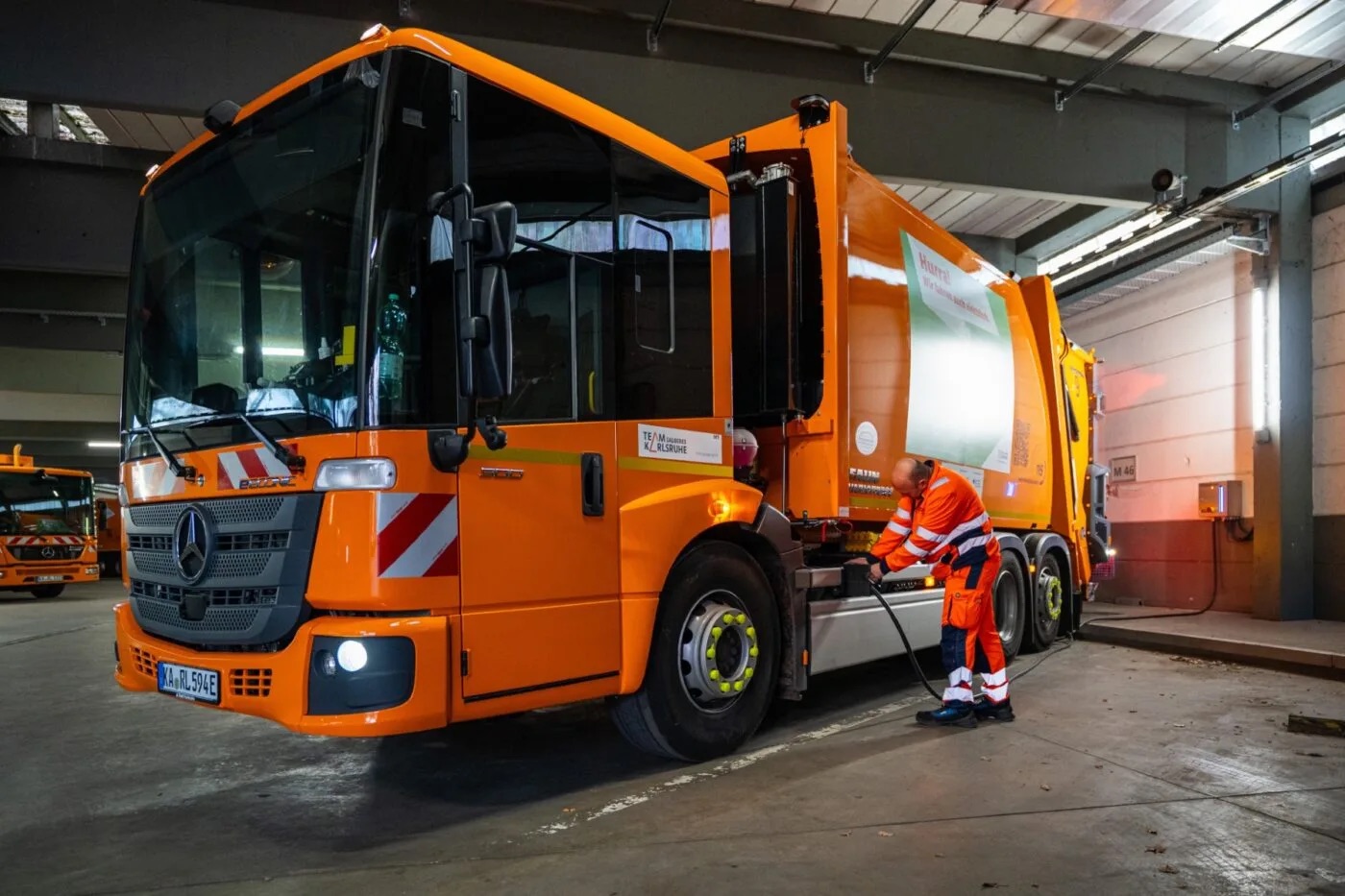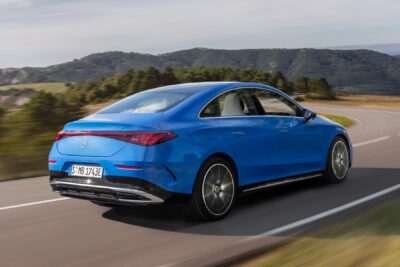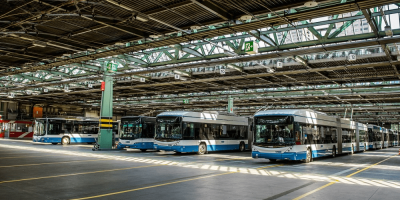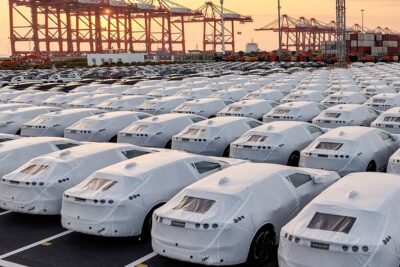Germany: 18 new electric trucks for waste collection
The seven electric refuse collection vehicles have been operating across the entire Karlsruhe city area, close to the French border, for several weeks – with no restrictions based on district, according to the partners. The Mercedes-Benz eEconic vehicles are used for residual waste, paper collection and bulky-waste pick-up. The rear loaders are equipped with bodies from Faun: two units feature a special body for bulky waste collection (“Powerpress 524H”), while the remaining five use Faun’s “Variopress 524HK with X-tipping” for collecting various recyclable and waste materials.
In daily operation, the vehicles will cover around 80 kilometres on average, and in some cases more than 100 kilometres, according to Daimler Truck. “With three battery packs on board, each with an installed capacity of 112 kWh and a usable capacity of around 97 kWh, all routes in Karlsruhe can be reliably completed in single-shift operation without intermediate charging,” the manufacturer reports. Specialists from Mercedes-Benz Trucks eConsulting and dealer S&G Automobil AG developed suitable deployment concepts for the urban area with the “Team Sauberes Karlsruhe” beforehand and advised on the appropriate charging infrastructure.
“Team Sauberes Karlsruhe” consists of around 540 employees responsible for waste collection, street cleaning and winter road services in Karlsruhe. The organisation also manages the municipal fleet and acts as a mobility service provider for the city administration and its municipal enterprises. TSK received its first fully electric refuse collection vehicle in September and carried out a one-week consumption measurement. The result: “Emma”, as the team affectionately calls the vehicle, covered about 80 kilometres with roughly 60 stops on its daily route. “Consumption was only around 35% of the battery capacity – the charge level dropped from 100% to 65% and 64% respectively,” the statement says.
The current seven and, in future, 18 electric refuse trucks are charged at the depot. For the time being, a decentralised satellite charging system with two 400 kW power units has been installed there, supplying eight wall-mounted charging points rated at 100 kW each. An energy management system controls power flows as efficiently as possible and can prioritise individual vehicles. A photovoltaic installation will be added in future to supply the vehicles with self-generated solar power. And: “Based on the jointly developed charging infrastructure concept, further optimisations of the ecosystem will also be possible in the future, such as the use of battery storage or intelligent charging at dynamic electricity prices,” the partners emphasise.
Mercedes-Benz Trucks experts and dealer S&G Automobil AG will support “Team Sauberes Karlsruhe” in implementing electrification over a period of three years – focusing on planning, vehicle deployment and charging infrastructure. The collaboration followed a one-year test phase (August 2024 to September 2025) to assess the suitability of electric trucks in refuse collection. Procurement of the electric fleet was funded through the now discontinued KsNI programme of the previous government.
TSK is already planning further purchases. In early November, Karlsruhe ordered eleven additional eEconic vehicles in low-entry design. By 2035, the municipal fleet is to be fully converted to alternative drives, with only an emergency reserve excluded.
This article was first published by Cora Werwitzke for electrive’s German edition.





0 Comments